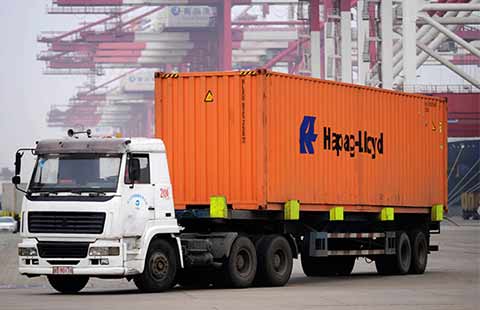China emphasizes energy conservation: white paper
(Xinhua) Updated: 2012-10-24 16:52BEIJING -- China stresses the significance of energy conservation in an effort to realize sustainable social and economic development, according to a white paper released Wednesday.
"As a country with a large population but relatively insufficient resources, China must take the path of energy conservation," says a white paper on China's energy policy which was released by the Information Office of the State Council.
China has always put energy conservation in the first place, the white paper says.
In the early 1980s, the country put forward the policy of "stressing both energy development and conservation, with priority on conservation."
China issued a comprehensive work plan on energy conservation and emission reduction in 2007, which made detailed planning for the energy consumption of major sectors, including the industrial sector, construction and transportation.
"It is an important strategic task of the Chinese government to maintain long-term, stable and sustainable use of energy resources," the white paper says.
China's energy development must follow a path of high technology content, low consumption of resources, light environmental pollution, sound economic returns, as well as energy security, the white paper says.
The country will control both total volume and the intensity of energy consumption, set up energy-saving production and consumption systems and accelerate the pace of building an energy-saving society, according to the white paper.
By the end of 2015, China will lower its energy consumption per unit of GDP by 16 percent from 2010 and lower its carbon dioxide emission per unit of GDP by 17 percent, according to the country's 12th Five-Year Plan (2011-2015).
- Research and industrialization of building energy conservation doors, windows and water-saving irrigation products
- Energy Conservation Association lights up in Zhaoqing
- The development zone to reconstruct energy conservation building in 2012
- Wen stresses energy conservation measures
- Japanese experts give lecture on energy conservation in Changsha
- China, Japan join hands in energy conservation efforts
- Xiaomi considers charging 5% membership fees
- China's newly added solar power capacity rise 52%
- Chinese filmmakers realistic over virtual reality
- China becomes 2nd largest VC destination
- Eakay Electric Auto seeks expansion for its rental business
- Seven IPO applications win approval
- China's forex market turnover hits 10.7t yuan in March
- Alibaba Health sets up JV with China Taiping Insurance

















